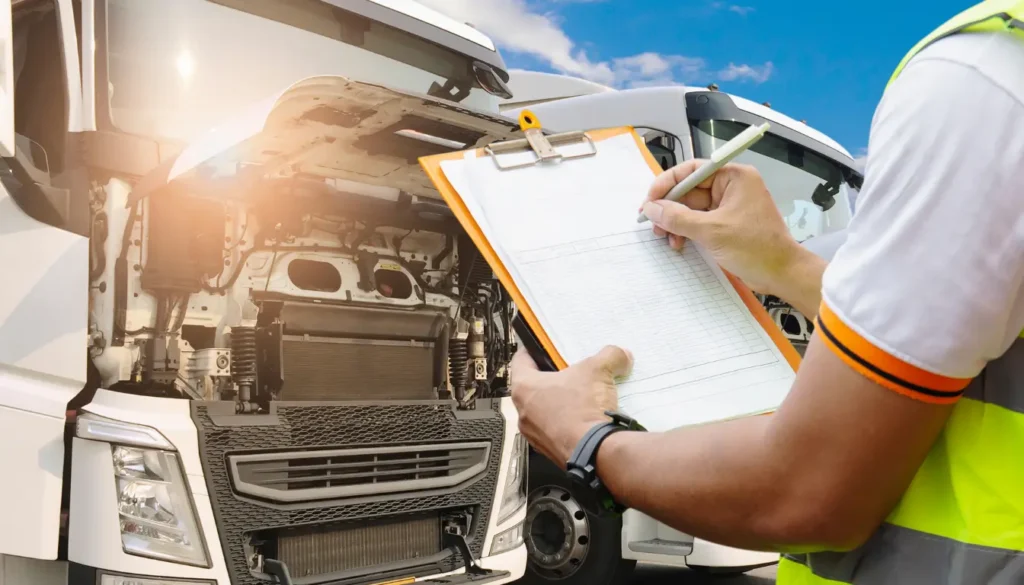Monday to Thusday: 7:00 - 17:00
Friday: 7:00 - 16:30
Saturday: 6:00 - 12:00
Sunday: Closed
Australia’s extensive road network heavily relies on the trucking industry to efficiently transport goods across the country. However, ensuring the safety and efficiency of this vital industry necessitates a comprehensive framework of regulations and standards. In this blog post, we will delve into the key trucking regulations in Australia, highlighting the importance of compliance and safety for all stakeholders, including trucking companies like DHT Truck Repairs in Melbourne.

Trucking regulations in Australia are primarily governed by several key authorities:
Australian Design Rules (ADR): These are national standards that govern the safety, emissions, and overall design of vehicles. Trucks must meet specific ADRs to be deemed roadworthy. Compliance with ADRs is essential for both manufacturers and operators, ensuring that trucks are built to the highest safety standards.
Work Diary Requirements: Truck drivers are required to maintain accurate work diaries to track their driving hours and rest breaks. These diaries help prevent driver fatigue and ensure that drivers are complying with mandated rest periods.
Chain of Responsibility (COR): COR regulations extend responsibility beyond just the driver to include all parties in the transport chain, such as operators, loaders, and consignors. They are accountable for ensuring safe practices throughout the journey, addressing concerns like overloading and driver fatigue.
Mass Limits: Trucks must adhere to strict mass limits, which vary depending on the type of vehicle and its configuration. Overloading poses a significant risk to road safety and infrastructure, making compliance crucial.
Dimension Limits: Trucks must also adhere to dimension limits to prevent damage to bridges, tunnels, and other infrastructure. Non-compliance can result in accidents and costly repairs.
Roadworthiness Inspections: Regular inspections and maintenance are essential to ensure the safety of trucks and heavy machinery. All trucks on Australian roads must undergo periodic roadworthiness inspections to identify and rectify any safety issues promptly.
Emissions Standards: Emissions regulations aim to reduce the environmental impact of heavy vehicles. Compliance with emission standards is not only environmentally responsible but also often required to access certain areas and facilities.
Special Purpose Vehicle Permits: For oversized or overweight loads, operators need special permits to ensure safe transportation and minimise damage to road infrastructure.
Access Agreements: Certain routes and roads may require specific access agreements, which may be subject to conditions such as time restrictions and load limits.
Compliance with trucking regulations in Australia is not optional; it’s a legal and moral obligation. Here’s why it matters:
The primary purpose of these regulations is to enhance road safety. Overloaded or poorly maintained trucks can pose significant risks to drivers, other road users, and the environment. By complying with regulations, trucking companies like DHT Truck Repairs prioritise safety above all else.
Non-compliance can result in severe legal consequences, including fines, loss of licenses, and even imprisonment for individuals and companies involved. Operating within the boundaries of the law is essential to avoid these penalties.
Trucking companies that consistently meet regulatory standards earn the trust and respect of their clients and partners. It’s a testament to their commitment to safety, reliability, and professionalism.
Compliance also reduces liability in case of accidents or incidents. Insurance claims and legal issues become far more manageable when a company can demonstrate adherence to safety regulations.
DHT Truck Repairs, based in Melbourne, understands the critical importance of regulatory compliance in the trucking industry. Here’s how they contribute to ensuring safety and compliance:

DHT Truck Repairs specialises in truck and heavy machinery maintenance. Their team of experienced technicians ensures that all vehicles and equipment are in optimal condition, meeting regulatory standards.
DHT Truck Repairs offers emergency repair services, addressing issues promptly to minimise downtime and ensure vehicles are roadworthy.
They stay updated with the latest regulatory changes, ensuring that their clients’ fleets are always in compliance with the law.
DHT Truck Repairs provides safety consultations to their clients, helping them develop and maintain best practices for compliance and safety.
Trucking regulations in Australia are a cornerstone of road safety and environmental responsibility. Compliance is not just a legal requirement but a commitment to safety and professionalism. DHT Truck Repairs in Melbourne is dedicated to helping their clients meet and exceed these standards, ensuring that Australia’s trucking industry remains safe and efficient for everyone. By working together to prioritise compliance, we can continue to drive Australia forward, one safe kilometre at a time.
